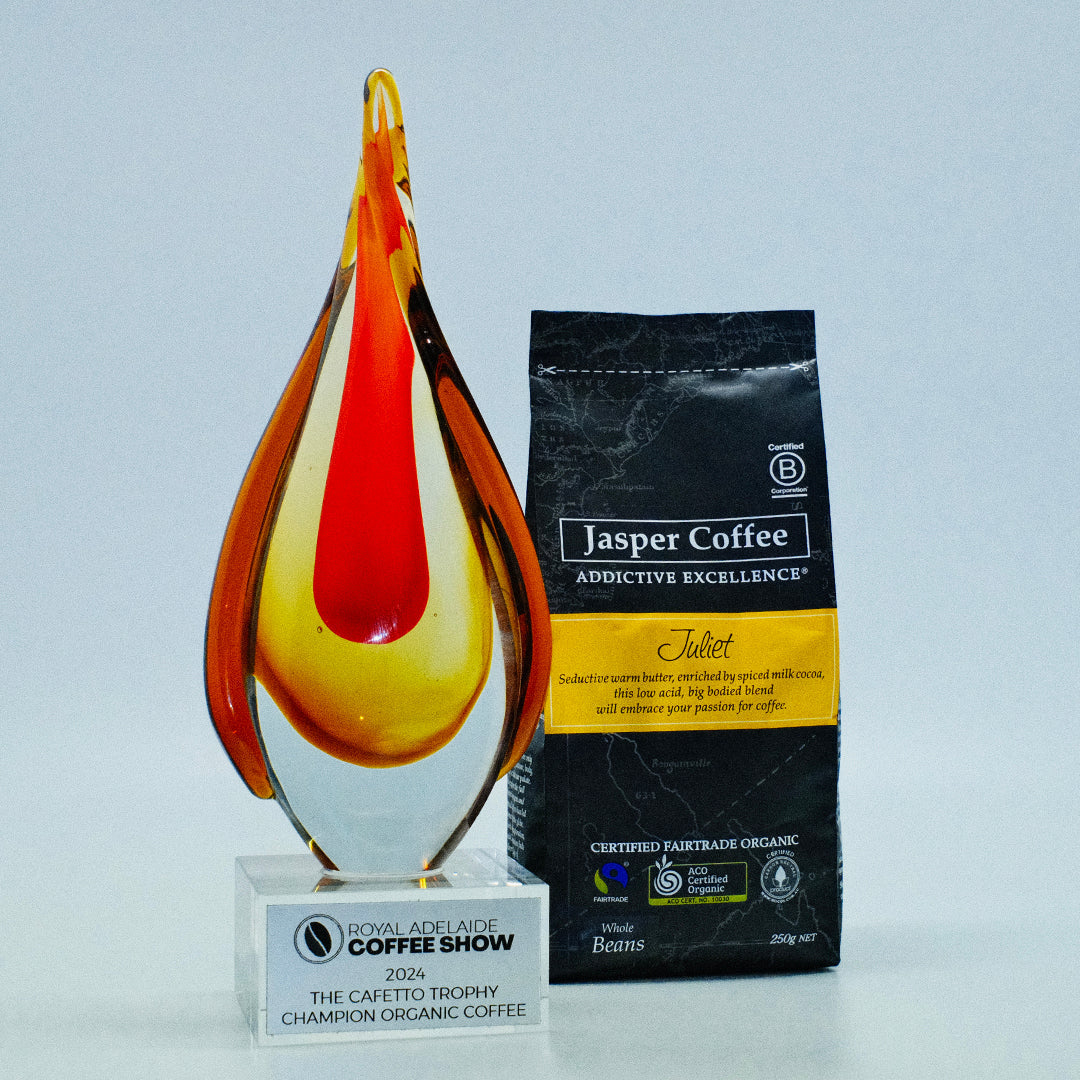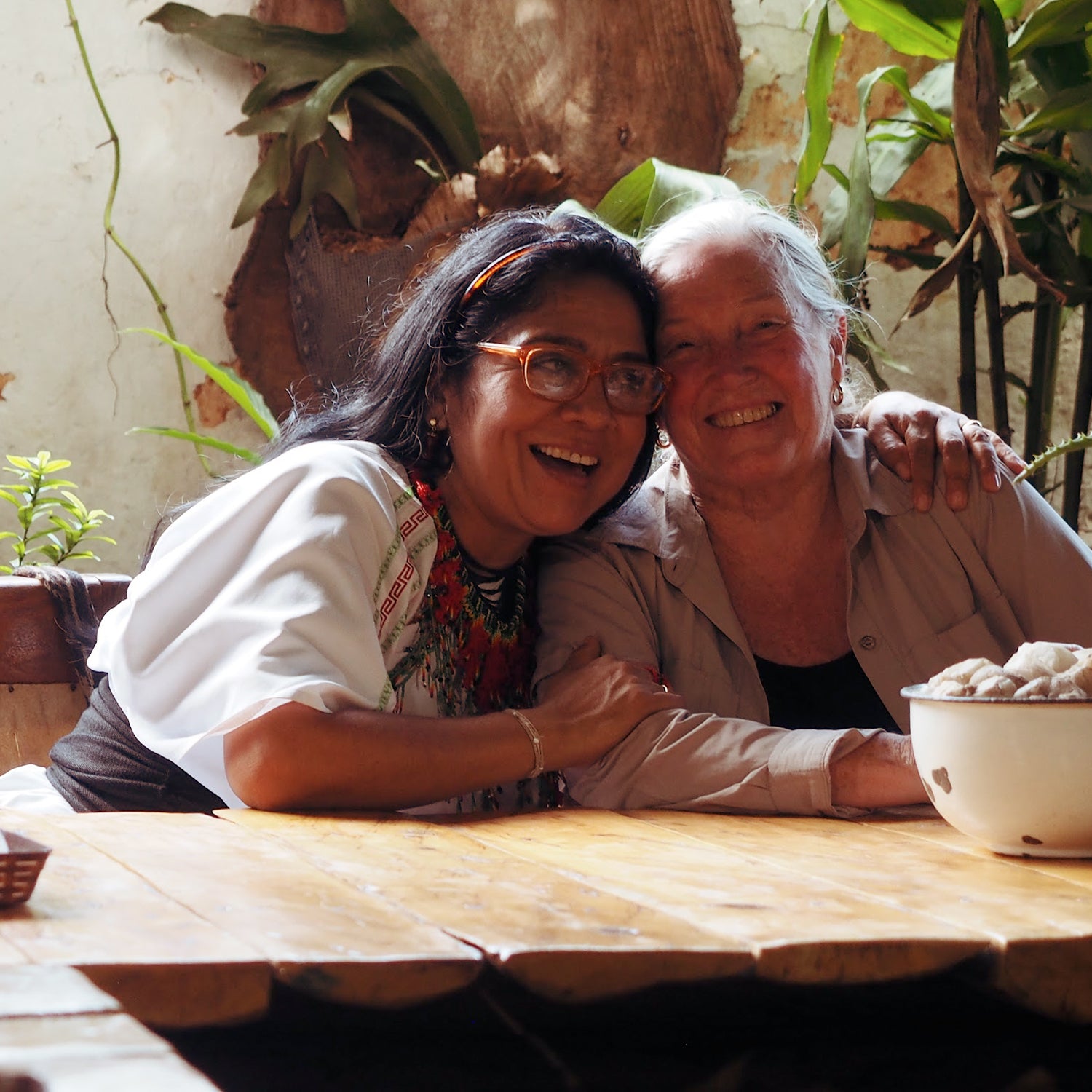What is Carbon Neutral?
Your daily cup of coffee might just be costing you more than you think. Research from the Carbon Reduction Institute shows each latté consumed has the same environmental impact as leaving your 60 watt bathroom light globe on for 3 hours. Times that by 2 lattés a day, 5 times a week and over a year you just left that light globe on for 2 months.
By calculating our footprint for production, shipping, packaging, airflights, power, staff transit to work, water and vehicles among all else, Jasper Coffee has determined the real cost of consuming the revered flat white that keeps us perky during the day.
The impact of climate change is not just in Antarctica. In the Tropics where the luscious caffeine crop grows, farmers are noticing unusual weather changes with extended heavy rains in Peru and Colombia resulting in volume shortfalls around 30%. Where once the fear was of frost in Brazil, now the dread of drought is the real consequence of Climate Change. This annually stirs gulps of price driven shivers predicting the new annual price of coffee in the market, set against the horror prospects of depleted crops.
By becoming a 100% Carbon Neutral Coffee company in 2009, our vision of collecting data and taking responsibility for our footprint and our carbon emissions has come to fruition.
A Carbon Credit represents one Tonne of CO2 equivalent Greenhouse gas that has been prevented from entering the atmosphere. These emissions are offset by a third party who reduces greenhouse gases on our behalf, through a Carbon Offset Project.
The Carbon Reduction Institute has assessed our carbon credits to consider, accreditation; environmental; additionality; financial additionality; leakage; permanence and additional social or economic benefits.
We source our carbon credits from projects that meet the above criteria. These carbon offsets are real, measurable, permanent, additional and independently verified. Jasper Coffee uses only the International Gold Standard Certification of verifiable carbon credits, through the Clean Development Mechanism, as prescribed under the Kyoto Protocol.
Our Carbon Neutrality is substantiated and supported by best practice auditing and carbon emissions accounting methods.
Having measured our carbon emissions we have now offset our operations with amazing renewable energy projects in India.
Electricity through India is generally fired from the coal powered grid, thus leading to high greenhouse gas emissions. New equipment fired by Biomass, mainly from local agricultural waste and other non- renewable biomass residues, is now used to generate the required energy for many industrial operations.
Now whole regions benefit from the sale and profits from the resultant carbon credits, and the cleaner, environmentally friendly fuel source. Very often, the investment required for installation of this new equipment, could not be raised without the revenue from sales of carbon credits.
However, we continue to find ways to directly reduce our emissions from our operations. These include, transitioning to Hybrid vehicles (Prius) ; introduction of compostable material for packaging; changing all lighting to L.E.D. or low heat/wattage fluorescent; engaging waste collection to separate compostable /landfill/cardboard; installing latest roasting equipment with zero atmospheric emissions and reducing gas and electricity consumption by 38%/22%; introduction of compostable Take Away cups, among other means.
Jasper Coffee is dedicated to joining the fight against climate change and urges other organisations across the country to do the same. The company’s greenhouse gas inventory is audited annually and approved by the Carbon Reduction Institute.
Every cup of coffee has a footprint. By becoming a 100% Carbon Neutral Coffee Company, Jasper Coffee is leading the way in creating a sustainable future. It means you can now enjoy your coffee with conscience.
So perk up, and don’t forget to switch off that light!

